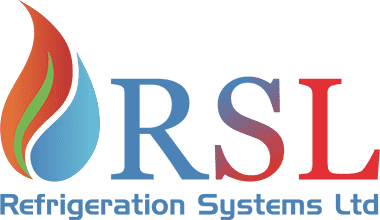Buying your first home is thrilling. You’re probably trying to keep track of a dozen things or more about making the right choice. We believe that gaining insight into your potential new HVAC system is crucial. The property’s HVAC system represents a significant investment and potential source of long-term costs, which is why due diligence should be a top priority for first-time homebuyers.
In this guide, we’ll share seven tips for discovering all there is to know about a home’s heating and cooling setup. And if you want a deeper opinion from the experts, consider calling Refrigeration Systems Ltd.. Our staff can weigh in on your options with industry insights you won’t find elsewhere.
1. Which Kind of HVAC System Does the Home Use?
Start by clarifying what specific HVAC system the home has. Furnaces tend to last longer than air conditioners, and newer types of HVAC equipment like heat pumps boast average life spans that are even longer. Knowing the make and specific model provides a clear idea of how much it might cost in upkeep over time.
2. What Is the Current System’s Age?
It’s just as smart to learn how old the HVAC system is when you’re considering a new home. On average, HVAC systems should survive for around 10-12 years. Knowing when it was installed helps you anticipate future maintenance needs or considerations if it might eventually stop working. Older systems are at a higher risk of problems, so fiscal planning for a replacement unit could be necessary sooner than you thought.
3. Does the System Have a Warranty?
Be sure to check the HVAC system is covered by a warranty. If it is, this can assist with maintenance costs. HVAC warranties should take care of parts and labor, but the details in each policy will vary. Don’t forget to look into any terms you don’t recognize to make sure you fully understand your coverage and any possible out-of-pocket costs.
4. When Was the Last Time It Received Maintenance?
Take a close look at the maintenance history of the HVAC system, if such information is accessible. This service history can reveal if the repair needs are high or how much upkeep was provided. Ask about records for key tasks like filter changes, which is a positive sign indicating regularly scheduled tune-ups.
5. Do You Know Its Energy Efficiency Ratings?
Finding a home that features an HVAC system with strong energy efficiency isn’t just smart; it leads to more manageable utility bills and less of an impact on the environment. Try and find the seasonal energy efficiency ratio (SEER) ratings for air conditioning as well as the annual fuel utilization efficiency (AFUE) for furnaces. Higher SEER ratings mean better cooling across the entire season, while high AFUE ratings indicate that the fuel is more effectively burned for useable heat.
6. Did You See Any Problems After Completing an Informal Inspection?
Even without heating and cooling expertise, it’s still a good idea to check out the HVAC system on your own. Look for signs of problems that weren’t mentioned by the seller or real estate agent. This includes strange noises, unequal airflow and attempts to cover up any visible damage.
7. Have You Asked Your Local HVAC Professional?
If you’re not quite sure about the current state of the HVAC system, it’s beneficial to get input from certified HVAC professionals. They are skilled at identifying things you might miss, like refrigerant leaks, wiring issues or inefficient ductwork.
A Consultation with Refrigeration Systems Ltd. Simplifies Your Home-Buying Journey
Choosing your first home ought to be exciting, and Refrigeration Systems Ltd. can ensure yours is too. Connect with us at 778-693-2532. We can discuss how our HVAC services give you peace of mind, giving you what you need to dive into home-ownership with confidence.
